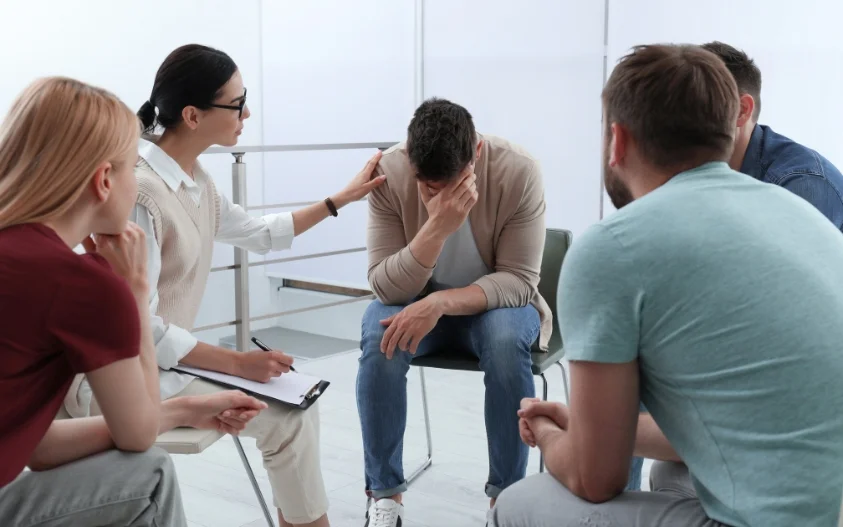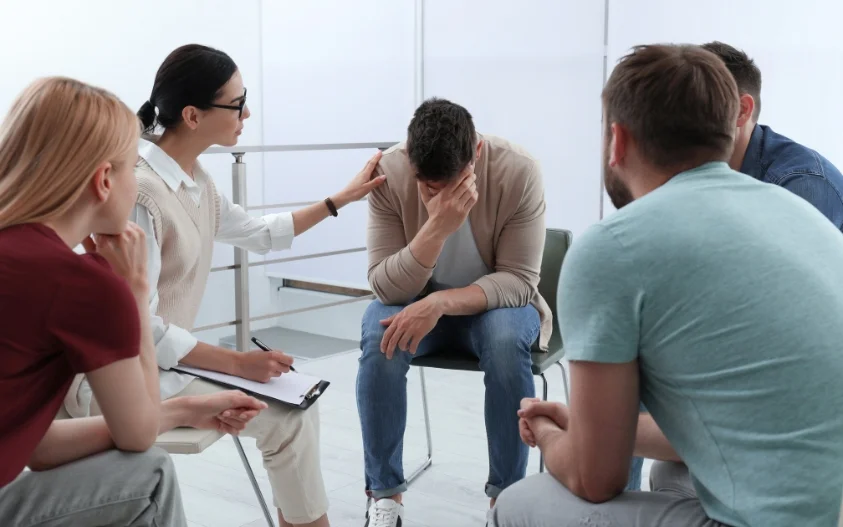24/7 Helpline:
(866) 899-111424/7 Helpline:
(866) 899-1114
Learn more about Opioid Rehab centers in Courtland
Opioid Rehab in Other Cities

Other Insurance Options

Oxford

GEHA

Sliding scale payment assistance

Sutter

United Health Care

Lucent

AllWell

Magellan Health

Group Health Incorporated
Beacon

Health Net

WellPoint

BHS | Behavioral Health Systems

Premera

Self-pay options

WellCare Health Plans

EmblemHealth

Choice Care Network

Optima

Carleon






Mental Health Center of North Central Alabama – Moulton Lawrence Counseling Center
Mental Health Center of North Central Alabama – Moulton Lawrence Counseling Center is a private reha...

Moulton Lawrence Counseling Center
Moulton Lawrence Counseling Center is a drug and alcohol rehab and counseling center in Moulton, Ala...

Prairie View – Outpatient
Prairie View – Outpatient is a private rehab located in Hillsboro, Kansas. Prairie View – Outpatient...

Highland District Hospital – Behavioral Health
Highland District Hospital – Behavioral Health is a private rehab located in Hillsboro, Ohio. Highla...

Family Recovery Services
Family Recovery Services represents a family of services offered by FRS Counseling, Inc. Although Be...

Family Recovery Services – SUD
Family Recovery Services - SUD represents a family of services offered by FRS Counseling, Inc. Altho...

Youth Contact – Baseline Street
Youth Contact – Baseline Street is a private rehab located in Hillsboro, Oregon. Youth Contact – Bas...

CODA – Hillsboro Recovery Center
CODA – Hillsboro Recovery Center is a private rehab located in Hillsboro, Oregon. CODA – Hillsboro R...

De Paul Treatment Centers – Outpatient Services
De Paul Treatment Centers - Outpatient Services is located in Hillsboro, Oregon. De Paul Treatment C...

LifeWorks – Walnut Street
LifeWorks – Walnut Street is a private rehab located in Hillsboro, Oregon. LifeWorks – Walnut Street...

Western Psychological and Counseling Services
Western Psychological and Counseling Services offers outpatient Mental Health and/or Substance Abuse...

Brian’s Safehouse
Brian's Safehouse is a place were men battling addiction can encounter the life-restoring powers of ...


























Community Services
Community Services is a private rehab located in Hillsboro, Missouri. Community Services specializes...

Scioto Paint Valley Mental Health Center
Scioto Paint Valley Mental Health Center provides help for drug addiction, alcoholism, and a variety...

Mission Teens – Ohio MBTC
Mission Teens - Ohio MBTC is a non-denominational Christian Discipleship located in Hillsboro, OH. M...

Family Recovery Services – Connections
Family Recovery Services - Connections represents a family of services offered by FRS Counseling, In...

Sequoia Mental Health Services
Sequoia Mental Health Services is a private rehab located in Hillsboro, Oregon. Sequoia Mental Healt...

Pacific Psychology Clinic
Pacific Psychology Clinic is a private rehab located in Hillsboro, Oregon. Pacific Psychology Clinic...

Ben Taub Hospital Behavioral Health
Ben Taub Hospital Behavioral Health is a private rehab located in Hillsboro, Texas. Ben Taub Hospita...



















